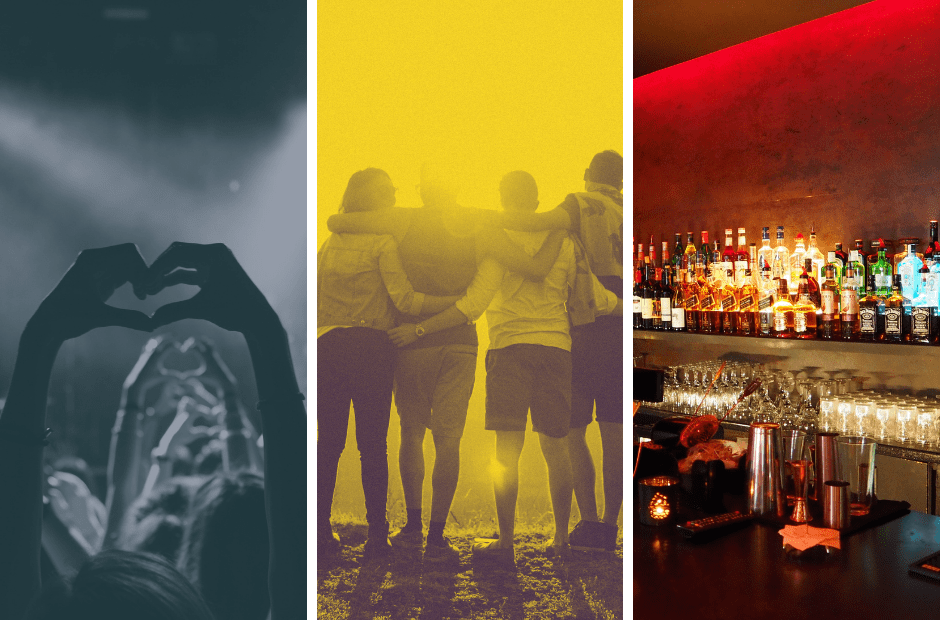Belgium will officially relax its current coronavirus restrictions in several stages over the coming months, as part of a wider summer plan.
“The Committee has been able to establish a broad summer plan to relax measures,” Prime Minister Alexander De Croo announced during a press conference on Tuesday. “Four out of 10 adult Belgian residents have already received their first vaccine dose. And the campaign will also accelerate.”
“The plan is based on two pillars: the first is vaccination, which is going extremely well,” he said. “And the second is, of course, the situation in intensive care.”
Belgium's "Summer Plan" will take effect if the number of Covid-19 patients in ICU does not exceed the maximum of 500, and if the vaccination campaign goes according to plan.
Here's how Belgium's latest timeline looks:
From 9 June:
- The hospitality sector can serve clients inside again, with a maximum of four people per table (unless it concerns a larger household, similar to the rules for terraces).
- Indoor areas will have to close at 10:00 PM, and the closing time for terraces will be moved up to 11:30 PM.
- Fairgrounds, fitness centres, casinos, cinemas, theatres and bowling alleys will also be allowed to reopen.
- People will be allowed to receive four close contacts at home, they do not have to be from the same group
- Teleworking rules will change and going into work will be allowed once a week, even if it is not essential. This will be limited to 20% of staff at a time.
- Indoor events can be held with a maximum of 200 people, seated, with face masks and at a safe distance from each other.
- Outdoor events can be held with a maximum of 400 people, with face masks and at a safe distance from each other.
- Religious ceremonies including marriages and funerals will be allowed with 100 people indoors or 200 outdoors.
- Non-professional sports can take place indoors with 50 participants, or outdoors with 100.
- Youth activities can be held with 50 participants, both inside and outside. Overnight stays are not yet allowed.
- Indoor receptions may take place with up to 50 people, following the same measures as the hospitality industry.
- Door-to-door sales are again permitted, as are the activities of sex workers.
- Manifestations and demonstrations of up to 100 people, with pre-arranged routes.
1 July:
- Teleworking will no longer be mandatory and will instead become recommended.
- Indoor events can be held with a maximum of 2,000 people, seated, with face masks and at a safe distance from each other.
- Outdoor events can be held with a maximum of 2,500 people, with face masks and at a safe distance from each other.
- Shopping can again be done without a limit on timing or the number of people in a group.
- Youth activities can be held with 100 participants, and overnight stays will be allowed.
- Non-professional sports no longer have restrictions.
- Religious ceremonies including marriages and funerals will be allowed with 200 people indoors or 400 outdoors.
- Indoor receptions may take place with up to 100 people, following the same measures as the hospitality industry.
30 July:
- Indoor events can be held with a maximum of 3,000 people, with face masks and at a safe distance from each other.
- Outdoor events can be held with a maximum of 5,000 people.
- Youth activities can be held with 200 participants, and overnight stays will be allowed.
- Indoor receptions for up to 250 people, following the rules of the hospitality industry.
- Trade fairs can reopen.
13 August
- Even larger events, such as festivals, outside again, providing participants have had the vaccine or have proof of a negative test.
1 September
- Fairs and flea markets will no longer have restrictions.
- Mass events, both indoors and outdoors, are allowed upon presentation of proof of vaccination or recent negative PCR test.
- Youth activities and camps can take place without restrictions.
- Religious services, including weddings and funerals, can happen without restrictions.
- Indoor receptions without restrictions.
“The idea is to lift the restrictions as much as possible from then on,” De Croo explained.
“1 September is not only the start of a new school year, but also the day on which we can once again allow our social life to flourish.”
Lauren Walker & Maïthé Chini contributed to this article.

